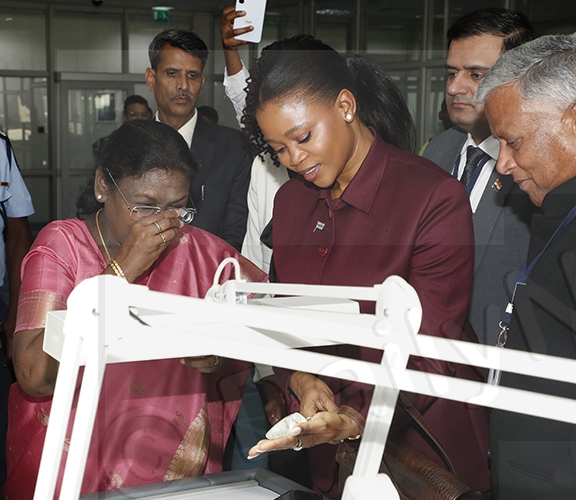Vermiculture profitable
10 Mar 2022
Ghanzi crop producers have been challenged to embrace vermiculture, a practice where a special species of worms are used to decompose organic waste to produce organic manure known as vermicompost, to improve their yield.
Handing over the vermicomposting project to the Rammala family in Ghanzi on Tuesday, Food and Agriculture Organisation (FAO) representative, Ms Lesedi Modo-Mmopelwa said her organisation was proud to sponsor a project that had potential to nourish the nation.
Ms Modo-Mmopelwa hailed the commitment of beneficiaries as overwhelming, stating that that the organisation’s funds would not go to waste.
She asserted that if the Ghanzi community could exploit vermiculture, the township would become a crop production hub. She considered vermicomposting project as a viable and profitable business opportunity.
For her part, the district agricultural coordinator, Ms Vellemiah Pelokgale said the vermicomposting project was one of climate smart agricultural practices piloted in the Ghanzi region, with a potential to become a mainstay of organic farming. She said the vermicomposting project was a cost-saving measure as one would not be required to buy seedling mix because vermicompost provided the necessary micro and macro nutrients needed by plant.
An Agronomist from the Department of Crop Production - Ghanzi, Ms Keeme Mooketsi said if the vermicomposting project could be taken to greater heights, it would increase food production, while saving the environment, as the soil would not be exposed to residues of synthetic fertilizers.
District officer, Mr Thatayaone Royal said looking at benefits of vermicomposting against its low operational costs, the district office would consider including this project in the Poverty Eradication Programme.
He held that the project, had the potential to revolutionise crop production in the Ghanzi area and feed the whole nation.
For his part, chief technical assistant at Sebele Agricultural Research Centre, Mr Elias Ramabu, who went in depth about vermiculture held that the use of earthworms to convert organic waste into compost was the most eco-friendly and sustainable means of food production.
Mr Ramabu stated that vermicompost pH was suitable for crops and it also contained microorganisms needed for plant growth.
He added that vermicomposting water extracts known as vermitea was highly nutritious and concentrated and had traits that suppressed pest and plant diseases. ENDS
Source : BOPA
Author : Mothusi Galekhutle
Location : GHANZI
Event : Handing over ceremony
Date : 10 Mar 2022





